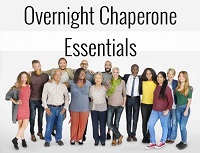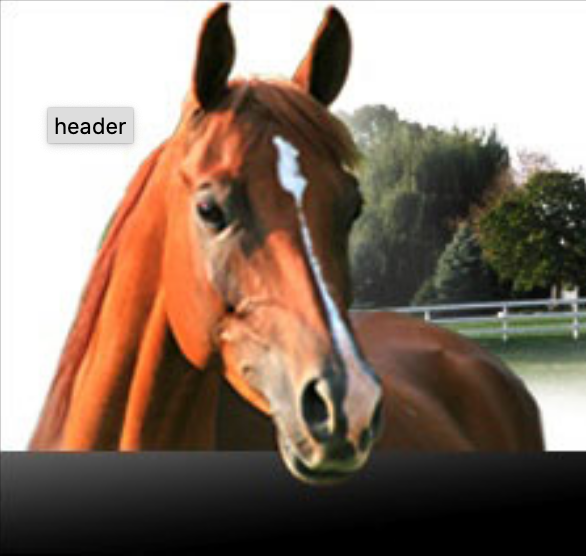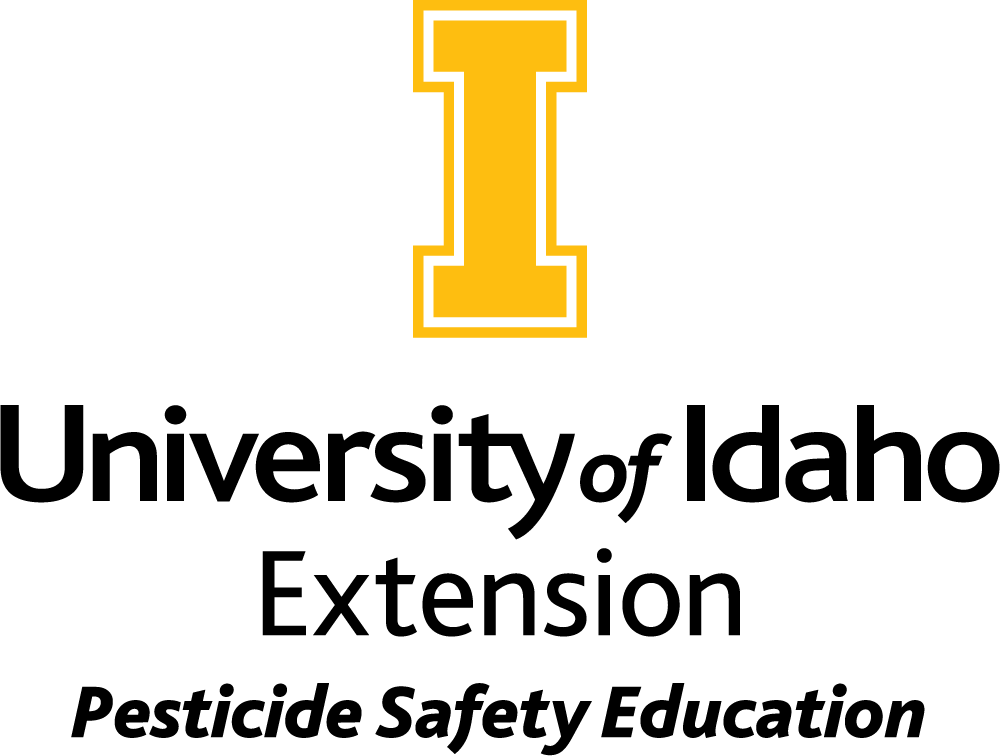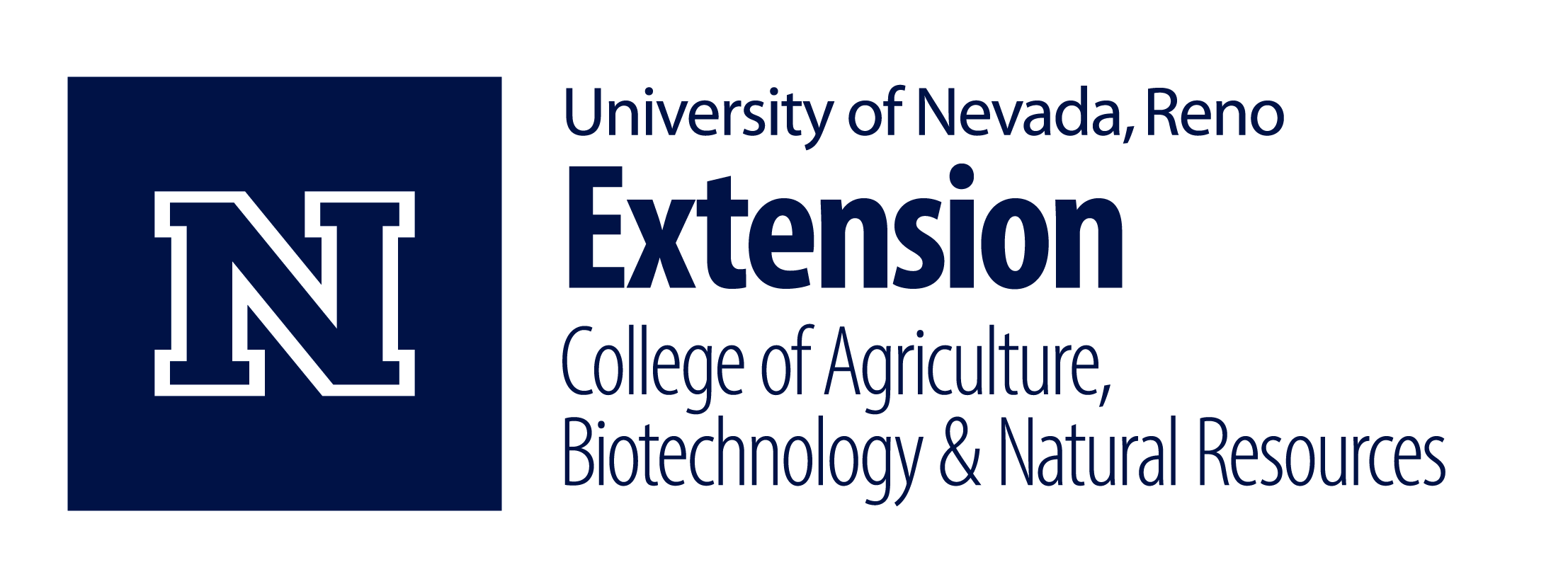Extension Foundation Online Campus
Search results: 548


- Learn four key principles to guide chaperones in their overnight duties
- Highlight the general responsibilities of a CA 4-H overnight chaperone
- Review the protective practices which create culturally, emotionally, and physically safe environments for participants
- Address health and medical safety issues chaperones face in overnight settings
- Discuss positive behavior management strategies
For more Information about the course:
Scott C. Mautte
4-H Program Representative for Volunteer Development
University of California, Agriculture and Natural Resources
Email: idevelopsupport@ucanr.edu
- Teacher: Zeva Cho
- Teacher: CA 4-H eXtension Tech Support
- Teacher: Scott Mautte
- Teacher: Gemma Miner
The audience for this UF/IFAS Extension Broward County Master Gardener Training Online course is students who have applied, interviewed, and been accepted into our program. This online component will be the main class platform in addition to weekly live Zoom meetings.
For more information or to enroll, please contact Steve Deegan –teacher and content specialist- UF/IFAS Extension Broward County, Urban Horticulture Education and Master Gardener Volunteer Coordinator stephen.deegan@ufl.edu
- Teacher: Lorna Bravo
- Teacher: Stephen Deegan

The goal of this toolbox is to equip agricultural professionals (I.e., ag-educators, extension professionals, crop consultants) with a broad understanding of AI and its potential role in sustainable agriculture, along with knowledge, skills and abilities to strategically communicate about this emerging technology and its risks and opportunities with agricultural audiences.
The instructional video course includes 10 asynchronous lectures and associated activities that can be engaged with at participants' convenience. Participants who complete all modules will receive a certificate of completion from Washington State University's Center for Sustaining Agriculture and Natural Resources.
This course is intended to be open, accessible and free-of-charge. No coursework is required for completion. However, the course is available for .3 Continuing Education Units (CEUs) with a $10 fee. If you take the course for CEUs, the pre- and post-survey must be completed to receive credit. Instructions for taking the course for CEUs are provided in the opening section of the course.
Participants will have the opportunity to:
- achieve a deeper awareness of AI in both society and sustainable agriculture;
- grow their understanding of the risks and benefits of using AI systems to achieve sustainable agriculture goals;
- develop knowledge of behavioral models predicting AI adoption among different audiences;
- obtain skills in utilizing strategic science communication theory to construct, frame and diffuse messages surrounding AI, its risks and opportunities;
- improve their confidence and abilities to facilitate engagement with AI in sustainable agriculture.
- Presenter: Alex Kirkpatrick
- Presenter: Morgan Lawrence

Understanding how a bit works in the horse's mouth will help you select the most appropriate bit for the job and appreciate the craftsmanship of well balanced and constructed bits.
The fee for this course is $10. To purchase and enroll in the course, click the following button.
If you purchase at least $40 worth of courses from this category, you can receive a 20% discount by entering the voucher code of HorseQuest20.
- Teacher: Kathy Anderson
- Teacher: Colleen Brady
- Teacher: Kris Hiney

Recertification credits are available for this course.
This pesticide recertification course covers fundamental concepts of toxicology and how to choose and handle pesticides safety. The course covers both short- and long-term health risks from handling pesticides and how to protect yourself.
This course has been approved by the Idaho State Department of Agriculture (ISDA) - Seminar #2024-637 for 1-ISDA pesticide credit.
If you have questions related to this course, please email: cals-ipm@uidaho.edu at University of Idaho Extension.
- Teacher: cals ipm


UNR 101 Signs and Symptoms of Illness (SOI) with Blood Borne Pathogens
Signs and Symptoms of Illness (SOI) including Blood Borne Pathogens: The Prevention and Control of Communicable Diseases in the Child Care Setting is for child care providers and early childhood educator.
This training discusses ways to recognize, prevent, and manage infectious diseases in early education and child care settings. Special precautions are discussed when handling bloodborne pathogens.
Course fee: $10.99 2-hours
Watch this video to learn how to create an account and pay for the course.
For Technical support email: campushelp@extension.org
Instructor email: childcare@unr.edu
- Teacher: Maria Jake
- Teacher: Stephanie May
- Teacher: Danielle Pertile
- Teacher: Cathryn Peshlakai
- Teacher: Lisa Whipple
- Teacher: Sarah Wright


UNR 102 Recognize and Reporting Child Abuse and Neglect
The focus of this course is to help childcare providers become familiar with the difficult subject of child abuse and neglect. In this course you will learn about:
There are 9 lesson in this course.
- Overview
- Physical Abuse
- Neglect
- Emotional Abuse
- Sexual Abuse
- Who are the abusers
- Disclosure
- Reporting
- Program Policies
View this video to learn how to create and account and pay for the course,
For Technical support email campushelp@extension.org
Instructor email: childcare@unr.edu
- Teacher: Maria Jake
- Teacher: Stephanie May
- Teacher: Danielle Pertile
- Teacher: Cathryn Peshlakai
- Teacher: Lisa Whipple
- Teacher: Sarah Wright


UNR 103 Sudden Infant Death Syndrome (SIDS)
Reducing the Risks of Sudden Infant Death Syndrome (SIDS)training is for Child Care Providers and Early Childhood Educators. This training discusses ways to lower the risk of SIDS in child care settings, addresses common beliefs, safe sleep practices, handling parent’s concerns and why some babies are at a higher risk for SIDS. This training promotes “Back to Sleep” and “Tummy to Play”.This training has been approved by Nevada Registry and the State of Maryland, Office of Child Care.
Course fee: $10.99 2-hours
Watch the following video to learn how to create an account and pay for the course.
For Technical support email: campusadmin@extension.org
Instructor email: childcare@unr.edu
- Teacher: Maria Jake
- Teacher: Stephanie May
- Teacher: Danielle Pertile
- Teacher: Cathryn Peshlakai
- Teacher: Lisa Whipple
- Teacher: Sarah Wright


UNR 104 Basic Wellness: Physical Activities, Nutrition and Obesity Prevention
Wellness-Physical Activities, Nutrition and Obesity Prevention is for Early Childhood Educators working with children Birth to 8 years. This training focuses on lifelong wellness related to childhood physical activity, nutrition and obesity prevention in the early childhood environment. The course contains age and developmental levels.
Course fee: $10.99 2-hours
Watch the following video to learn how to create an account and pay for the course.
For Technical support email: campushelp@extension.org
Instructor email: childcare@unr.edu
- Teacher: Maria Jake
- Teacher: Stephanie May
- Teacher: Danielle Pertile
- Teacher: Cathryn Peshlakai
- Teacher: Lisa Whipple
- Teacher: Sarah Wright


UNR 105 Wellness: Nutrition and Obesity Prevention in Young Children
Level: Intermediate
As we explore this subject, we’ll focus on the importance of wellness, nutrition and obesity prevention, especially at the intermediate level. Our goal is to equip you with knowledge that can make a lasting impact on children’s health.
Course fee: $10.99 2-hours
Watch this video to learn how to create an account and pay for a course.
For Technical support email: campushelp@extension.org
Instructor email: childcare@unr.edu
- Teacher: Maria Jake
- Teacher: Stephanie May
- Teacher: Danielle Pertile
- Teacher: Cathryn Peshlakai
- Teacher: Lisa Whipple
- Teacher: Sarah Wright


Course fee: $10.99 2-hours
Watch this video to learn how to create an account and pay for the course. .
For Technical support email: campushelp@extension.org
Instructor email: childcare@unr.edu
- Teacher: Maria Jake
- Teacher: Stephanie May
- Teacher: Danielle Pertile
- Teacher: Cathryn Peshlakai
- Teacher: Lisa Whipple
- Teacher: Sarah Wright


UNR 107 Child Development: Birth to three Years
This module will focus on the first three years of a child's life, when there is an enormous amount of growth and development. Our role in supporting children's progress is critical. What each of us does makes a difference. Topics include: Brain Development, Developmental Domains, the Role of the Teacher and Positive Interactions.
Course fee: $5.99 1-hour
Watch this video to learn how to create an account and pay for the course.
For Technical support email: campushelp@extension.org
Instructor email: childcare@unr.edu
- Teacher: Maria Jake
- Teacher: Stephanie May
- Teacher: Danielle Pertile
- Teacher: Cathryn Peshlakai
- Teacher: Lisa Whipple
- Teacher: Sarah Wright


UNR 108 Child Development: Three to Five Years
This module will focus on the preschool years ages three to five, when there is an enormous amount of growth and development. Our role in supporting children's progress is critical. What each of us does makes a difference. Topics include: Brain Development, Developmental Domains, the Role of the Teacher and Positive Interactions.
Course fee: $5.99 1-hour
For Technical support email: campushelp@extension.org
Instructor email: childcare@unr.edu
- Teacher: Maria Jake
- Teacher: Stephanie May
- Teacher: Danielle Pertile
- Teacher: Cathryn Peshlakai
- Teacher: Lisa Whipple
- Teacher: Sarah Wright


UNR 109 Child Development: Positive Guidance
This module will present the goals of positive guidance, misunderstandings about guidance, key practices, effective environments, common behavior challenges and offer positive guidance strategies for the classroom
Course fee: $5.99 1-hour
Technical support email: campushelp@extension.org
Instructor email: childcare@unr.edu
- Teacher: Maria Jake
- Teacher: Stephanie May
- Teacher: Danielle Pertile
- Teacher: Cathryn Peshlakai
- Teacher: Lisa Whipple
- Teacher: Sarah Wright


UNR 110 Emergency Preparedness for Early Childhood Programs
Being prepared for emergencies can make a big difference as to whether or not the children in your care and the staff in your program remain safe. In this course, you will learn about the necessary steps a program should take to ensure preparedness in the event of an emergency, as well as effective strategies to communicate your emergency plan to children, parents and staff.
For Technical support email: campushelp@extension.org
Instructor support email: childcare@unr.edu- Teacher: Maria Jake
- Teacher: Stephanie May
- Teacher: Danielle Pertile
- Teacher: Cathryn Peshlakai
- Teacher: Lisa Whipple
- Teacher: Sarah Wright


UNR 111 Medication Administration and the Prevention of and
Response to Food and Other Allergies in the Child Care Environment
This course is designed to provide childcare providers with information that will help safely administer medications to children in your program. This course is for childcare providers who administer medication to children but are not licensed health care professionals.
Course Fee: No charge
For Technical support email campushelp@extension.org
Instructor email: childcare@unr.edu
- Teacher: Maria Jake
- Teacher: Stephanie May
- Teacher: Danielle Pertile
- Teacher: Cathryn Peshlakai
- Teacher: Lisa Whipple
- Teacher: Sarah Wright


UNR 112 Prevention of Shaken Baby Syndrome and Abusive Head Trauma
This training describes causes, symptoms and consequences of Shaken Baby Syndrome/Abusive Head Trauma (SBS/AHT). The lesson further provides information on caring for a crying baby and how to cope with a baby who cries inconsolably.
Course Fee: No Charge
For Technical support, email: campushelp@extension.org
Instructor email: childcare@unr.edu
- Teacher: Maria Jake
- Teacher: Stephanie May
- Teacher: Danielle Pertile
- Teacher: Cathryn Peshlakai
- Teacher: Lisa Whipple
- Teacher: Sarah Wright


UNR 113 Transportation Safety
This course presents recommended practices and policies for the safe transport of young children to and from childcare programs.
Course fee: No charge
For Technical support email: campushelp@extension.org
Instructor email: childcare@unr.edu
- Teacher: Stephanie May
- Teacher: Danielle Pertile
- Teacher: Cathryn Peshlakai
- Teacher: Monica Salazar
- Teacher: Lisa Whipple
- Teacher: Sarah Wright

Building and Physical Premises Safety Including the Storage and
Handling of Bio-Contaminants and Hazardous Materials
This training can be taken to meet the initial training requirement for Building and Physical Premises Safety approved by NV Registry.
Course fee: No charge
For Technical support email: campushelp@extension.org
Instructor email: childcare@unr.edu
- Teacher: Stephanie May
- Teacher: Danielle Pertile
- Teacher: Cathryn Peshlakai
- Teacher: Monica Salazar
- Teacher: Chelsie Shurtleff
- Teacher: Lisa Whipple
- Teacher: Sarah Wright


UNR 115 Supporting Young Dual Language Learners
This training will provide participants with an understanding of young children who are dual language learners. We will explore the developmental domains and the stages of language development. Strategies will be presented for supporting home language and teaching strategies in the classroom.
Course fee: $5.99 1-hour
For Technical support email: campushelp@extension.org
Instructor email: childcare@unr.edu
- Teacher: Desiree Cabacar
- Teacher: Savannah Castanon
- Teacher: Maria Jake
- Teacher: Cathryn Peshlakai
- Teacher: Erin Skaggs
- Teacher: Lisa Whipple
- Teacher: Sarah Wright


UNR 116 Safe Practices with Infants and Toddlers
Ensuring the well-being of infants and toddlers requires careful attention to key areas such as nutrition, feeding techniques, and sleep safety. These foundational aspects not only support healthy development but also create a secure environment for young children to thrive.
Course fee: $5.99 1-hour
For Technical support email: campushelp@extension.org
Instructor email: childcare@unr.edu
- Teacher: Cathryn Peshlakai
- Teacher: Lisa Whipple
- Teacher: Sarah Wright


UNR 117 Family Engagement in Early Childhood
This training is designed
to guide educators of young children to establish and maintain open and
cooperative relationships with each child’s family. The course will focus on
effective communication, policies which promote cooperative relationships, and support
for families.
Topics will include
family involvement, conflict with families, conferences and community
resources.
Course fee: $5.99 1-hour
For Technical support email: campushelp@extension.org
Instructor email: childcare@unr.edu
- Teacher: Cathryn Peshlakai
- Teacher: Lisa Whipple
- Teacher: Sarah Wright


The Pyramid Model 100 is a comprehensive, resource for implementing the Pyramid Model for Promoting Social Emotional Competence in young children. Developed by leading experts including Mary Louise Hemmeter, Lise Fox, and Michaelene Ostrosky, it translates decades of research into actionable strategies for providers working with young children.
UNR-EC Pyramid Model 100 Fee: $5.99- Teacher: Cathryn Peshlakai
- Teacher: Lisa Whipple


UNR-EC Pyramid Model 200- Building Collaborative Relationships
The Pyramid Model 200 is a comprehensive, resource for implementing the Pyramid Model for Promoting Social Emotional Competence in young children. Developed by leading experts including Mary Louise Hemmeter, Lise Fox, and Michaelene Ostrosky, it translates decades of research into actionable strategies for providers working with young children.
UNR-EC Pyramid Model 200 Fee: $5.99
This course will issue a certificate for 1 hour of Nevada Registry approved training.
- Teacher: Cathryn Peshlakai
- Teacher: Lisa Whipple


UNR-EC Pyramid Model 300-
Environments, Schedules and Routines
The Pyramid Model is a comprehensive, resource for implementing the Pyramid Model for Promoting Social Emotional Competence in young children. Developed by leading experts including Mary Louise Hemmeter, Lise Fox, and Michaelene Ostrosky, it translates decades of research into actionable strategies for providers working with young children.
UNR-EC Pyramid Model 300 Fee: $5.99
This course will issue a certificate for 1 hour of Nevada Registry approved training.
- Teacher: Cathryn Peshlakai
- Teacher: Lisa Whipple


UNR-EC Pyramid Model 400-
Transitions, Expectations and Rules
The Pyramid Model is a comprehensive, resource for implementing the Pyramid Model for Promoting Social Emotional Competence in young children. Developed by leading experts including Mary Louise Hemmeter, Lise Fox, and Michaelene Ostrosky, it translates decades of research into actionable strategies for providers working with young children.
UNR-EC Pyramid Model 400 Fee: $5.99
This course will issue a certificate for 1 hour of Nevada Registry approved training.
- Teacher: Cathryn Peshlakai
- Teacher: Lisa Whipple


UNR-EC Pyramid Model 500- Promoting Child Engagement and
Using Positive Descriptive Feedback
The Pyramid Model 500 is a comprehensive, resource for implementing the Pyramid Model for Promoting Social Emotional Competence in young children. Developed by leading experts including Mary Louise Hemmeter, Lise Fox, and Michaelene Ostrosky, it translates decades of research into actionable strategies for providers working with young children.
UNR-EC Pyramid Model 500 Fee: $5.99
This course will issue a certificate for 1 hour of Nevada Registry approved training.
- Teacher: Cathryn Peshlakai
- Teacher: Lisa Whipple


UNR-EC Pyramid Model 600 Teaching Strategies and Emotional Literacy
The Pyramid Model Bundle is a comprehensive, resource for implementing the Pyramid Model for Promoting Social Emotional Competence in young children. Developed by leading experts including Mary Louise Hemmeter, Lise Fox, and Michaelene Ostrosky, it translates decades of research into actionable strategies for providers working with young children.
UNR-EC Pyramid Model 600 Fee: $5.99
This course will issue a certificate for 1 hour of Nevada Registry approved training.
- Teacher: Cathryn Peshlakai
- Teacher: Lisa Whipple
- Teacher: Sarah Wright


UNR-EC Pyramid Model 700-
Friendship Skills and Social Problem Solving
The Pyramid Model Bundle is a comprehensive, resource for implementing the Pyramid Model for Promoting Social Emotional Competence in young children. Developed by leading experts including Mary Louise Hemmeter, Lise Fox, and Michaelene Ostrosky, it translates decades of research into actionable strategies for providers working with young children.
UNR-EC Pyramid 700 Fee: $5.99
This course will issue a certificate for 1 hour of Nevada Registry approved training.
- Teacher: Cathryn Peshlakai
- Teacher: Lisa Whipple


UNR-EC Pyramid Model 800 Understanding, Preventing and
Responding to Challenging Behavior
The Pyramid Model training is a comprehensive, resource for implementing the Pyramid Model for Promoting Social Emotional Competence in young children. Developed by leading experts including Mary Louise Hemmeter, Lise Fox, and Michaelene Ostrosky, it translates decades of research into actionable strategies for providers working with young children.
UNR-EC Pyramid Fee: $5.99
This course will issue a certificate for 1 hour of Nevada Registry approved training.
- Teacher: Cathryn Peshlakai
- Teacher: Lisa Whipple
